6 Traditional Chinese Medicine (TCM) Products to Help You Sleep
- Over-the-counter herbal formulas
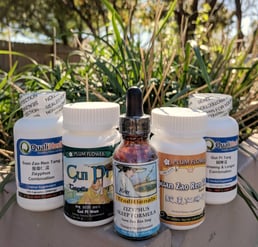
There are several safe and effective over-the-counter traditional Chinese herbal formulas to help with insomnia, whether you have trouble with falling asleep, staying asleep, waking feeling unrested, or all of the above. AOMA clinician Nelson Song Luo mentioned the two formulas below in this great blog post; here's some more information!
Suan Zao Ren Tang
- Nourishes Heart Shen and Liver Blood
- Clears deficient heat and calms the Spirit; helps with stress, anxiety, and irritability
- Can also help with restlessness, inability to or difficulty in falling asleep, palpitations, night sweats, dizziness, vertigo, thirst, and dry mouth and throat
- Studies have shown its safety and effectiveness at helping patients with menopause-related insomnia
Gui Pi Wan
- Nourishes Spleen Qi and Heart Blood
- Tonified Blood and Qi
- Helps with fatigue, insomnia, and poor sleep or dream disturbed sleep
- Can also help with poor memory, heart palpitations, anxiety, phobias, low appetite, and night sweats
- Salt lamp
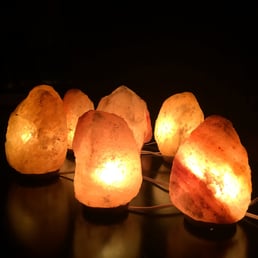
Made from pink salt crystals native to the Himalayas, salt lamps are said to release negative ions, helping to cleanse dust particles from the air and boost energy levels. Some salt lamp users have even reported elevated mood, reduced anxiety, improved sleep, and reduced allergy and asthma symptoms. While no major studies have supported these claims, the warm pinkish glow of a salt lamp will make a welcoming and beautiful addition to your bedroom. Recent studies have shown that exposure to bright lights suppresses the production of melatonin, a hormone that promotes sleep, so the dim light of a salt lamp might even make you sleepy if used in place of brighter bedroom lights.
- Green tea
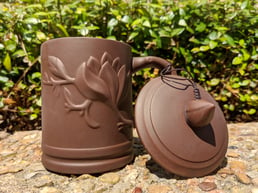
Caffeine is a stimulant, and once consumed, it stays with you for longer than you might expect: it takes about 6 hours for just 1/2 of the caffeine you consumed to be eliminated! So the closer to bedtime you take in caffeine, the more likely you are to experience sleeplessness. Cutting out caffeine at least 6-7 hours before your bedtime would be best but may not always be possible! If you just CAN’T say no to a late-afternoon pick-me-up, try reaching for green tea instead of coffee to reduce the amount of caffeine you’re consuming. On average, one cup of green tea contains 35-70mg of caffeine as opposed to a cup of coffee, which contains 100mg of caffeine. Green tea is also high in antioxidants and polyphenols, and it contains catechin which can enhance immune system function. Green tea, or Lu Cha, is also a traditional Chinese medicine herb! It has cooling properties and works with the Heart, Lung, and Stomach meridians to reduce inflammation, regulate blood sugar, and boost the metabolism. Bonus points if you drink your tea from a beautiful cup that puts a smile on your face!
- Meditation candles
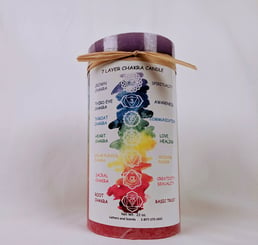
According to a study cited on Harvard Medical School’s blog, 6 weeks of regular meditation scored higher than 6 weeks of sleep education for improving insomnia, fatigue, and depression among adults who reported trouble sleeping. But meditation can often seem too difficult or downright unapproachable, especially for beginners. Concentration meditation can be an easy way to jump into meditation, as it only requires focusing your awareness on one specific thing; for example, a candle flame. Having a point of focus can help you quiet the mind and relax fully; try starting with a few minutes before bed and work your way up to 5, 10, and then 15-20 minutes a day.
- Spirit-Quieting massage oil
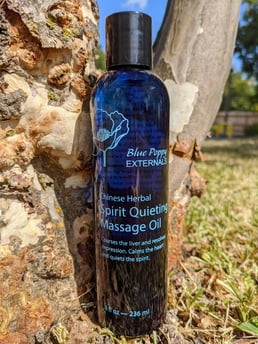
If your mind won’t stop racing long enough to allow you to sleep, Blue Poppy’s Spirit Quieting massage oil might be just what you need! It incorporates several traditional Chinese herbs formulated together to help to resolve depression and calm stress and anxiety of the mind and the emotions. It can be used as a relaxing massage oil for your whole body or as a pre-bedtime bath oil.
Functions of Specific TCM Herbs Used in Formula:
- He Huan Hua (Flos Albiziae): courses the Liver, quickens the Blood and quiets the Spirit.
- Bai He (Bulbus Lilii): nourishes and enriches the Heart, clears heat from the Heart and quiets the Spirit.
- Shi Chang Pu (Rhizoma Acori Tatarinowii): opens the orifices, dispels phlegm, and quiets the Spirit.
- Chen Xiang (Lignum Aquilariae): courses the Liver and moves the qi, reduces counterflow.
- Yuan Zhi (Radix Polygalae): quiets the Heart and calms the Spirit, dispels phlegm and opens the orifices.
- Sweet Orange oil is added as a fragrance, and also moves and harmonizes the qi.
Ingredients/functions source: https://www.lhasaoms.com/blue-poppy-spirit-quieting-massage-oil
- Qi gong CD or DVD
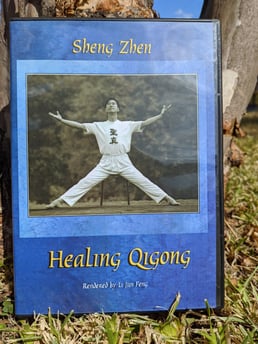
A recent UCLA study showed that a slow-moving meditation practice like tai chi or qi gong works just as well as talk therapy, and better than medication, at helping patients with insomnia. Qi gong is a whole-body exercise that integrates the breath with body movements. It is designed to loosen the joints, promote deep breathing, and relax the body. Body movements in tai chi and qi gong are used to aid the Qi in its journey along the acupuncture meridians, dissolve blockages that can lead to sickness and disease, and increase general energy level.
In case you’re asking yourself, “how the heck do I do qi gong?” AOMA’s amazing alumni Nicole and Jenna host a fantastic educational YouTube channel that will teach you! I highly recommend all of their content, but a good place to start would be the video series entitled… wait for it… “HOW THE HECK do I do Qigong?!” You can find Nicole and Jenna’s YouTube channel here.
AOMA Herbal Medicine also has a few great qi gong resources to support you in your practice. In Master Li’s “A Return to Oneness,” you will practice the qi gong of unconditional love to begin a journey of rediscovery, a journey back to your true home. “Where does one's true home lie? The saying 'home is where the heart is' does not mean only that one's affections lie where one's home is. Its deeper meaning is that the Heart is where the true home is.” (ShengZhen.org).
Sources:
https://www.sleepfoundation.org/articles/caffeine-and-sleep
https://www.choiceorganicteas.com/much-caffeine-tea/
https://www.ncbi.nlm.nih.gov/pmc/articles/PMC5034925/
https://www.lhasaoms.com/blue-poppy-spirit-quieting-massage-oil

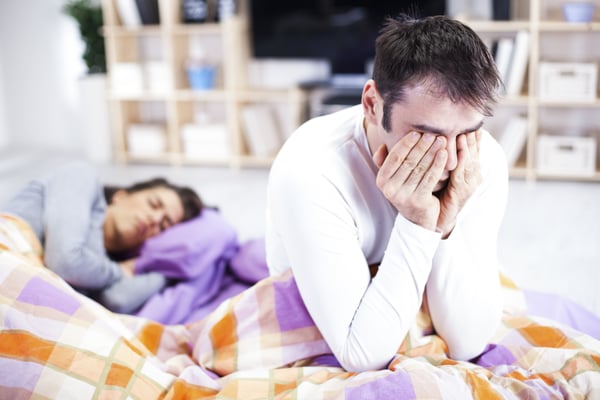

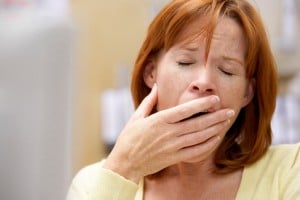 tom of several sleep disorders. According to Western medicine, there are two types of insomnia, primary and secondary. Primary insomnia is not directly related to any other health problems whereas secondary insomnia is difficulty sleeping due to another issue such as asthma, pain, arthritis, cancer, depression or due to a side effect of a medication.
tom of several sleep disorders. According to Western medicine, there are two types of insomnia, primary and secondary. Primary insomnia is not directly related to any other health problems whereas secondary insomnia is difficulty sleeping due to another issue such as asthma, pain, arthritis, cancer, depression or due to a side effect of a medication.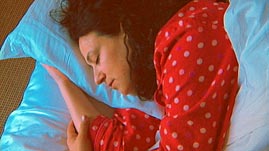 Practitioners of Chinese Medicine treat insomnia by taking into consideration your overall balance of mind, body, and spirit. The condition may be treated using acupuncture, herbal remedies, diet and lifestyle changes, and relaxation techniques. Treatment will be highly individualized and will depend on the underlying cause of the insomnia, which will be differentiated by your practitioner. A proper diagnosis is key to successfully treating insomnia, which may be caused by a number of factors including physical strain, mental and emotional stress, or improper diet. All these things must be examined in the patient’s life and adjusted to increase their state of balance. This will be different for each person and tailored to fit their specific needs. Patients with insomnia often have deeply relaxing treatments and fall asleep during their sessions.
Practitioners of Chinese Medicine treat insomnia by taking into consideration your overall balance of mind, body, and spirit. The condition may be treated using acupuncture, herbal remedies, diet and lifestyle changes, and relaxation techniques. Treatment will be highly individualized and will depend on the underlying cause of the insomnia, which will be differentiated by your practitioner. A proper diagnosis is key to successfully treating insomnia, which may be caused by a number of factors including physical strain, mental and emotional stress, or improper diet. All these things must be examined in the patient’s life and adjusted to increase their state of balance. This will be different for each person and tailored to fit their specific needs. Patients with insomnia often have deeply relaxing treatments and fall asleep during their sessions.
